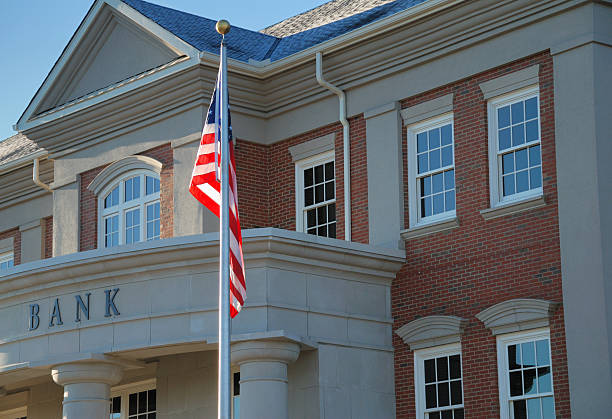Are you a foreigner or non-resident interested in opening a bank account in the US? The process can be challenging, as traditional banks have strict requirements and regulations in place. However, with the rise of online banking, it has become easier for non-residents to access banking services in the US.
In this article, we will explore the requirements for opening a bank account in the US as a foreigner or non-resident, as well as the benefits of online banking compared to traditional banks. We will also highlight five of the best US banks for foreigners and non-residents to consider. So if you’re looking to open a US bank account, keep reading to find out everything you need to know.
Can a foreigner open a bank account in the U.S.?
Yes, a foreigner can open a bank account in the US. However, the process can be more challenging for non-residents due to specific requirements and regulations that traditional banks must follow.
In the past, traditional banks required non-residents to have a social security number (SSN) to open an account. Still, the rise of online banking has made it easier for non-residents to open and manage their bank accounts in the US, without the need for an SSN.
Non-residents must provide specific forms of identification and meet other requirements, such as providing proof of address and income. Overall, while it can be more challenging for non-residents to open a bank account in the US, it is possible with the right documentation and preparation.
What are the requirements to open a bank account in the U.S.?
Opening a bank account in the US can be a daunting task for foreigners or non-residents due to the country’s stringent banking regulations.
However, the advent of online banking has made the process more accessible for non-residents. The advent of online banking has made the process more accessible for non-residents. Let’s explore the specific prerequisites that non-residents must meet to successfully open a bank account in the US.
Valid Identification
One of the primary requirements for opening a bank account in the US is valid identification. Non-residents must provide a valid passport or other government-issued ID that includes a photo and signature. The bank will use this information to verify your identity and ensure that you are who you claim to be.
Proof of Address
Banks in the US also require proof of address from non-residents. This can be a challenge for non-residents, as they may not have a US address. However, some banks accept a foreign address and require a secondary form of identification, such as a utility bill or bank statement that displays the non-resident’s name and address.
Registered Company
Non-residents who own a registered company in the US can use their company’s documents to open a bank account. The company’s documentation may include a Certificate of Incorporation, Articles of Organization, or Certificate of Formation, depending on the type of company.
Employer Identification Number (EIN)
Non-residents who operate a business in the US can apply for an EIN, which is a unique nine-digit number assigned by the Internal Revenue Service (IRS). This number is used for tax purposes and can be used to open a bank account in the US.
Individual Taxpayer Identification Number (ITIN)
While SSN is commonly used to open a bank account in the US, non-residents may not have one. However, some banks may accept an Individual Taxpayer Identification Number (ITIN) in lieu of an SSN.
Initial Deposit
Most banks require an initial deposit to open a bank account. The amount may vary depending on the bank and account type. Some banks may require a minimum deposit of $100, while others may require $1,000 or more.
Additional Documentation
Depending on the bank and account type, non-residents may be required to provide additional documentation. This may include business documentation, such as business licenses or permits, and financial documents, such as bank statements or tax returns.
Why online banks are better than traditional banks?
Foreigners and non-residents face challenges when opening bank accounts in the US, especially with traditional banks. However, the emergence of online banking has simplified the process, making it easier to open and manage accounts. Let’s delve into the reasons why online banks are superior to traditional banks.
Accessibility
One of the most significant advantages of online banks over traditional banks is accessibility. With online banks, you can open and manage your account from anywhere in the world, without having to visit a physical branch. This is particularly beneficial for non-residents who may not be able to visit a traditional bank branch due to location or travel restrictions.
No Physical Presence Required
Traditional banks require non-residents to visit a physical branch to open an account, which can be a significant barrier to entry. However, with online banks, you can open an account entirely online, without having to be physically present in the US. This makes the process of opening a bank account more convenient and accessible for non-residents.
No Social Security Number (SSN) Required
Another significant advantage of online banks over traditional banks is that they do not require a social security number (SSN) to open an account. This is particularly beneficial for non-residents who may not have an SSN. Instead, online banks may accept alternative forms of identification, such as a passport or government-issued ID.
Lower Fees
Online banks tend to have lower fees than traditional banks, making them a more affordable option for non-residents. Traditional banks often charge higher fees for international transactions or non-resident accounts, which can add up over time. Online banks may have lower fees and may not charge additional fees for international transactions.
Better Interest Rates
Online banks often offer higher interest rates than traditional banks, which can be a significant benefit for non-residents who want to earn more on their deposits. While traditional banks may offer lower interest rates, online banks may offer higher rates due to lower overhead costs.
Digital Tools and Services
Online banks often offer a variety of digital tools and services, such as mobile apps, online bill pay, and budgeting tools. These tools can make banking more convenient and accessible for non-residents. Traditional banks may offer some digital tools, but they may not be as robust as those offered by online banks.
Enhanced Security
Online banks often have advanced security measures in place to protect against fraud and cyber attacks. These security measures can be beneficial for non-residents who may be at a higher risk of fraud due to their non-resident status. Traditional banks may also have security measures in place, but online banks often have more advanced and sophisticated security features.
5 Best US Banks for Foreigners & Non-Residents
As a foreigner or non-resident looking to open a bank account in the US, it can be challenging to find a bank that meets your needs. Traditional banks often require an in-person visit and proof of residency, which can be difficult for non-residents to provide.
However, with the rise of online banking, there are now more options available to non-residents looking to access banking services in the US. In this section, we’ll explore five of the best US banks for foreigners and non-residents.
Relayfi
Relayfi is an online banking platform that offers a variety of services, including checking accounts, savings accounts, and debit cards. They offer a simple and straightforward account opening process, with no minimum balance or monthly fees. With Relayfi, you can manage your account entirely online, making it an excellent option for those who prefer digital banking. Additionally, Relayfi offers features such as mobile deposit and bill pay, making it a convenient option for non-residents.
Mercury
Mercury is an online bank designed specifically for startups, entrepreneurs, and small businesses. They offer business checking accounts with no monthly fees or minimum balance requirements, making it an attractive option for non-resident business owners. With Mercury, you can manage your account entirely online, including features such as free ACH transfers, mobile deposit, and online bill pay. Additionally, Mercury offers integrations with popular accounting software, such as Quickbooks and Xero, making it a convenient option for business owners.
Wise
Wise, formerly known as TransferWise, is a popular online money transfer service that also offers multi-currency accounts. With Wise, you can hold and manage money in multiple currencies, making it an excellent option for non-residents who need to transact in different currencies. They offer competitive exchange rates and low fees, making it a cost-effective solution for international money transfers. Additionally, Wise offers features such as mobile deposit and bill pay, making it a convenient option for non-residents.
Payoneer
Payoneer is an online payment platform that offers a variety of services, including prepaid Mastercards, merchant accounts, and global payment services. They offer a straightforward account opening process, with no minimum balance or monthly fees. With Payoneer, you can receive payments from clients and marketplaces worldwide, making it an attractive option for freelancers and non-resident entrepreneurs. Additionally, Payoneer offers integrations with popular freelance marketplaces, such as Upwork and Fiverr, making it a convenient option for freelancers.
Trynovel
Trynovel is an online banking platform designed specifically for non-residents. They offer checking accounts, savings accounts, and debit cards with no minimum balance or monthly fees. With Trynovel, you can manage your account entirely online, making it a convenient option for those who prefer digital banking. Additionally, Trynovel offers features such as bill pay, mobile deposit, and free ACH transfers.
Conclusion
Opening a bank account as a foreigner or non-resident in the US can be a challenging task. Traditional banks often require in-person visits and proof of residency, making it difficult for non-residents to access banking services.
However, with the rise of online banking, there are now more options available to non-residents looking to open a bank account in the US. From our list of the five best US banks for foreigners and non-residents, you can choose the one that best meets your needs based on factors such as fees, services offered, and ease of use.
Whether you’re a freelancer, small business owner, or just need a multi-currency account, there’s a bank on this list that can meet your needs. With these online banks, you can manage your finances from anywhere in the world, making it easier than ever before to access US banking services.



